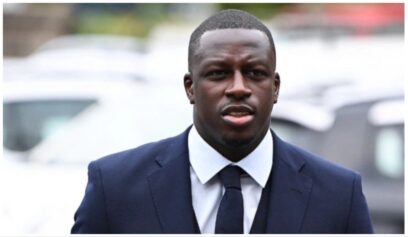Led by a man with a similar story to theirs, Creative Player Foundation is using soccer to help at-risk youth.
It isn’t unusual to hear Daniel Araujo tell his own story — of growing up poor in Uruguay to becoming a professional soccer player — to motivate kids he trains at his indoor training facility in Charlotte, North Carolina. Authoritative, demonstrative and animated — with an echoing voice to match — Araujo is known to thank his lucky stars every day for “the game of futbol,” as he calls the world’s most popular sport.
Soccer, after all, became his lifeline, affording him not only a living but an opportunity to see the world in an eight-year playing career in South America.
The married father of two – who became a sports agent after his playing career ended in 2000 – owns and operates Creative Player, Inc., a soccer-specific training facility that boasts development that fosters “dynamic movement and coordination for the modern game.
But while training and developing players who aspire to play at the collegiate and professional levels allows him to stay close to the game, it’s Araujo’s Creative Player Sports Foundation that is making the most meaningful impact. It’s one that allows him to share his gift of soccer with kids who wouldn’t otherwise be able to afford his services.
Ask Araujo about his foundation, launched in 2013, and the conversation slowly goes away from tactics and formations and eventually turns to the game providing a sense of community and support for at-risk Charlotte youth, a place where the youth poverty rate is 36 percent for African American children and 39 percent for Hispanic children.
“The vision was always to use the soccer ball as a tool of education and opportunity for them,” says 45-year-old Araujo, who played at the pro level for first division Central Espanol FC in Montevideo, Uruguay, Deportivo Pasto in Colombia and Adet FC in El Salvador. “We needed to do something to help the kids who can’t play due to the costs of the local clubs, so we started the foundation and began bringing kids from underprivileged neighborhoods, schools and different locations around the Charlotte area and beyond.”

Photo Credit: Creative Player Sports Foundation
Continued Araujo: “I come from Uruguay, a small country in South America. My parents didn’t even finish elementary school. We were very poor. I barely finished high school and didn’t go to college, but I had the opportunity to play professional soccer. Soccer was my opportunity to see the world and make a living. I know where those kids are coming from.”
BUILDING A LEGACY
Araujo has gotten comfortable wearing multiple hats to keep his Creative Player training facility (which he co-founded with technical director John Pietak) and foundation afloat; bookkeeper one minute, scheduler and janitor the next. Araujo has also been strategic – forging key partnerships in the community while serving on boards that embrace his vision, including the Latin American Chamber of Commerce and Johnson C. Smith University’s External Multicultural Advisory Council.
His efforts caught the attention of Relevent Sports Group (RSG), the company that operates the International Champions Cup (ICC), the summer tournament that draws Europe’s biggest soccer clubs to the U.S. As part of its efforts to cement its footprint beyond big matches, the ICC is being intentional about social responsibility, aligning its brand and muscle with grassroots organizations like the one Araujo runs.
“Going into our seventh year, we thought it was important to connect and partner in our local markets with teams and venues that are hosting us, and to reach out into the community and find ways to help,” explains Aaron Ryan, RSG’s chief operating officer. “We understand that there’s lots of organizations that participate in really meaningful ways in soccer, but often times it’s the smaller organizations, and often times individuals, like Daniel, who have programs that we realize sometimes wouldn’t be brought into the fold, so we did the early work to try to find organizations that needed the help, and had a unique mission that we thought we could make an impact on.”
Continued Ryan: “Sometimes it’s as simple as fixing a leaky roof, or providing some resources that reduce the distraction and obstacles for him to teach, and for kids to realize the joy of soccer.”

Photo Credit: Creative Player Sports Foundation
Not one to be caught speechless, Araujo was humbled that RSG thought enough of the foundation’s work to reach out and lend a hand. “For us to be contacted by one of the biggest sports companies in the world means a lot to us,” says Araujo, whose afterschool program serves 56 kids in grades four through seven who benefit from classroom tutors, snacks, soccer equipment and transportation from school to the facility. “To be able to have them cover some expenses that were not in our budget is big for us. For instance, they’ve offered to pay for the roof of the facility – fixing all the leaks that we currently have. Sometimes the kids are reading and when it’s raining hard, we have to move the tables and chairs because there’s a lot of leaks in the classroom.”
For RSG, this is far from a one-off gesture; the company intends to develop relationships with organizations like Creative Player Foundation in every city that they stage friendly games – providing equipment, gear as well as other logistical resources.
Best of all, and most definitely for the Creative Player Foundation kids, RSG will provide 30 game tickets to the Arsenal-AS Roma match at Bank of America Stadium on July 20.
When told of RSG’s package of support, Araujo could only marvel at how far he himself has come and how that round ball has afforded him the opportunity to improve the lives of others. He mentions one student who is new to America – having just arrived from Honduras, not speaking a word of English. And another student who is autistic and one other whose narrative is that he’s a problem child.
“It makes me feel like I’ve achieved a goal that back in the day when I was growing and when I was playing, was just a dream,” explains Araujo, a former central midfielder in his day. “But now it’s a reality, and it makes me feel complete – like we achieved our goal. To me it’s all about that, and this is why I decided to do this instead of going to work for a bigger club just training kids. To me there has to be something behind this. Whether it’s to teach a kid English or to help a kid who is transitioning to America, we understand that not every kid is the same – and once we’re in the classroom or on the field, we’re all one.”



